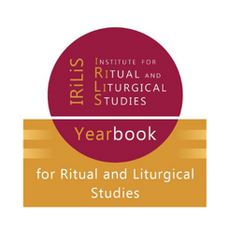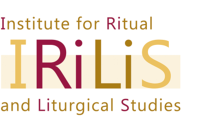
Yearbook for Ritual and Liturgical Studies
The Yearbook for Ritual and Liturgical Studies annually offers a forum for innovative, national and international research in the field of ritual and liturgical studies. As with the book series Liturgia Condenda, the rationale of this journal is that liturgy and ritual are complex, multidimensional research objects that are to be investigated both contextually (in past and present) and from a variety of (sub)disciplinary perspectives. This rationale gives this journal a distinct multidisciplinary, societal and cultural oriented profile.
Since 1996 the Yearbook has been co-published by IRiLiS and the Institute for Christian Cultural Heritage at Groningen University. In 2009, the English subtitle of this multilingual series was added to its official Dutch title Jaarboek voor Liturgieonderzoek. As of 2017, the Yearbook has no longer appeared in print, but online via University of Groningen Press (Open Access, CC-BY).
Editorial board
The editorial board consists of prof. dr. Mirella Klomp (editor in chief, Utrecht), dr. Martin Hoondert (Tilburg), dr. Andrew Irving (Groningen), prof. dr. Justin Kroesen (Bergen), dr. Mary E. McGann (Berkeley, CA), prof. dr. Paul Post (Tilburg), prof. dr. Gerard Rouwhorst (Utrecht/Tilburg), prof. dr. Eric Venbrux (Nijmegen) and dr. Joanna Wojtkowiak (Utrecht).
Advisory board
Members of the advisory board are prof. dr. Marcel Barnard (Amsterdam/Stellenbosch), prof. dr. Sible de Blaauw (Nijmegen), prof. dr. Joris Geldhof (Leuven), prof. dr. Bert Groen (Graz), prof. dr. Benedikt Kranemann (Erfurt), dr. Jan Luth (Groningen), prof. dr. Keith Pecklers (Rome/Boston), dr. Susan Roll (Ottawa), prof. dr. Martin Stringer (independent), prof. Teresa Berger (New Haven, CT).
Submitting articles
You are kindly invited to submit a manuscript for publication in the online journal Yearbook for Ritual and Liturgical Studies by sending an email to irilis@pthu.nl.
Length
Articles should not normally exceed 8,000 words in length, including any notes, and should be submitted ready for publication. Illustrations (provided that they are free of rights) may separately be sent along. Summaries of dissertations (normally published in the language of the thesis) should not exceed 5,000 words. These should not contain any notes or illustrations.
Language
The Yearbook prefers receiving manuscripts written in English. You can also submit texts written in Afrikaans, Dutch, French or German. In case of an article written in a language other than the author's mother tongue, the text must be corrected at native speakers level before submission. IRiLiS is not responsible for the quality of the correction, nor can cover its costs.
Stylesheet
When preparing your manuscript, please use the style sheet with editorial and bibliographical instructions.
Anonymizing your manuscript
Manuscripts should be anonymized by the author prior to submission. If your submission is not anonymized, the editors may return it to you and request you to remove any identifying information before the manuscript can be reviewed.
Peer review
All submitted articles are subject to peer review. If a manuscript is not rejected when first received, it is sent out for review to (a minimum of) two peer reviewers who are part of the series’ academic cadre of reviewers. Review by associate editors or staff may compliment this process. This is done according to a double‐blinded review procedure, in which the reviewer's identities are withheld from the authors and vice versa. Once reviewers return their reports and recommendations, the editor-in-chief makes a decision (either on his own or in consultation with other editors) on whether to reject the manuscript (either outright or with encouragement to resubmit), to withhold judgment pending major or minor revisions, to accept it pending satisfactorily completed revisions, or to accept it as written. Once a manuscript that is not rejected has been revised satisfactorily, it will be accepted and put into the production process to be prepared for publication.

